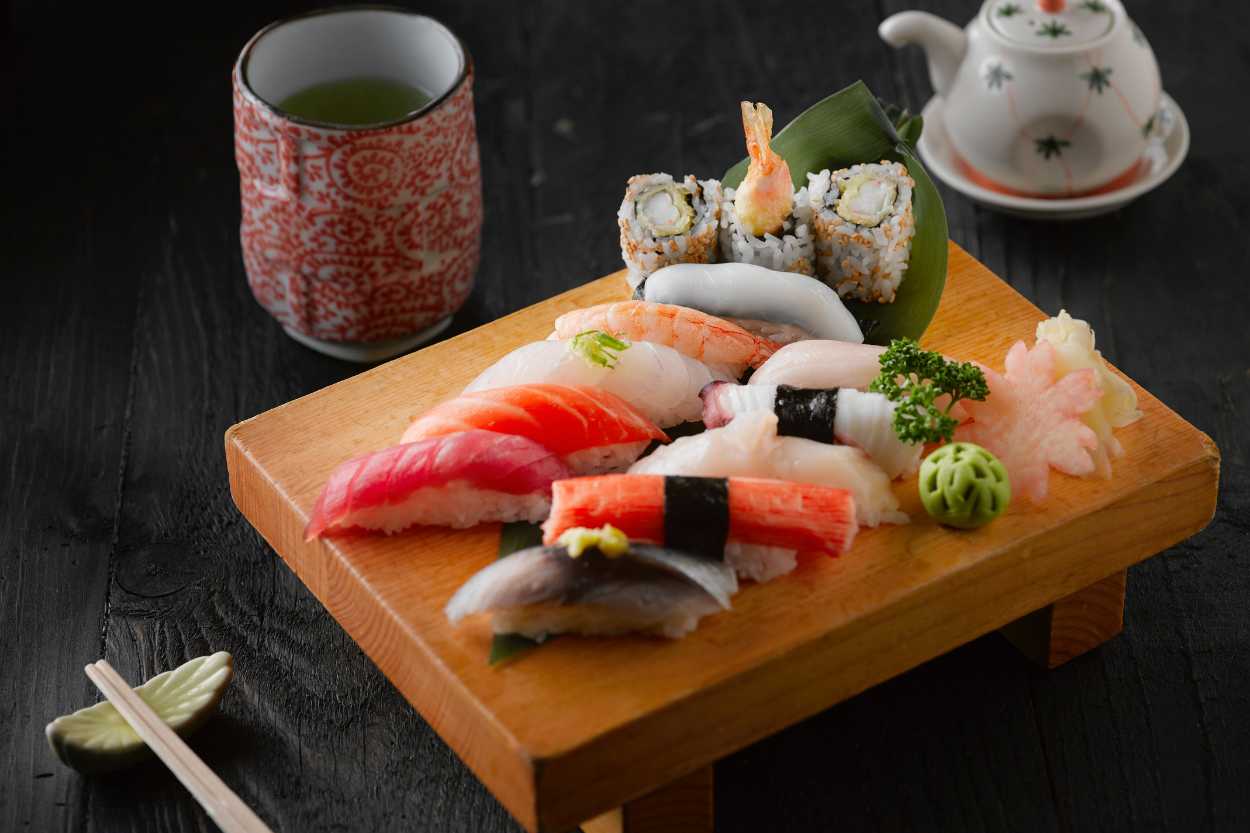Among many foods around the world, not many look, taste, and feel like sushi. Based on insights from SeafoodSource, sushi has become increasingly popular, even in grocery stores, as part of the prepared foods section. Over the past few years, sushi has seen twice as much promotional activity among supermarkets as in 2019.
This sushi craze may be due to the lack of access to Japanese restaurants in the US. Today, there are a mere 20,000 open in the country, and only over 5,000 are limited-service restaurants specializing in takeout and delivery. Additionally, younger consumers have also contributed to sushi’s retail popularity. Findings from Morning Consult indicate that 6% of Gen Z consumers list sushi as their top five favorite foods.
However, with so much hype surrounding the Japanese special, it may be worth questioning if sushi is healthy for you — especially if you’ve got weight loss goals you’d like to achieve. In this post, we’ll explore why sushi may be a good weight loss option and how you can integrate it into your weight loss diet:
Why sushi is a healthy weight loss option
While some may argue that authentic Japanese sushi is the healthiest form, sushi, in general, is considered a healthy alternative to other foods.
To begin with, sushi generally consists of healthy ingredients, including rice, seaweed, fruits, vegetables, and various seafood. This makes it an appealing and healthy option for those who are dieting to lose weight.
After all, a sustainable diet and weight loss plan shouldn’t be focused on restricting what and how much you eat. As such, your weight loss journey shouldn’t stop you from enjoying a sushi platter once in a while.
In fact, modern weight loss programs focus on developing healthier relationships with food. WeightWatchers weight loss program implements a Points system to their process, discouraging members from categorizing foods into “good” or “bad.” Instead, the Points system specifies nutrient-dense ZeroPoint foods that won’t contribute to unwanted weight gain.
Fortunately, sushi seems to fit the bill. Over the years, researchers have deemed sushi full of health benefits, including protein, vitamins, antioxidants, and omega-3 fatty acids, which are good for heart health. Below, we’ll share some tips for including sushi in your weight loss diet:
Prioritizing proteins
As mentioned above, sushi is considered rich in proteins, thanks to the many seafood ingredients it uses. However, not all sushi rolls are made the same. If you want to focus on nutrients and protein, you should look for specific sushi ingredients.
For example, salmon nigiri, one of the most common types of sushi, is rich in complete protein. They have nine essential amino acids that the body doesn’t typically produce. Similarly, shrimp is also a common ingredient and is low in calories while packing lots of protein.
Choosing healthy carbohydrates
Another key ingredient of sushi is rice. Rice is a good source of carbohydrates and can get you full without having to eat too much. However, as highlighted in our “Can Diabetics Eat Sushi?” post, rice can also contribute to higher blood sugar, especially for those with type 2 diabetes.
Fortunately, if you want to make your own sushi, you can find healthier rice substitutes like brown rice. This will still provide a similar texture and taste to regular sushi but with healthier carbs. Brown rice is naturally more nutritious than its white counterpart and is softer.
Use rice vinegar
Finally, what makes sushi such a health food is its lack of oil. Any sushi with cooked meat is usually grilled rather than fried, which means it doesn’t use oil at all. Of course, some sushi ingredients, like fish, will have natural oils.
If you’ve ever enjoyed a sushi platter and wondered what the slick, slightly oily feel is, that’s rice vinegar. This is what gives your sushi roll its distinct taste compared to most other rice dishes.
As such, there are certainly ways to enjoy sushi without worrying about gaining weight. You can also check out the ichi Sushi website for more sushi guides and insights.

Hiroshi Nakamura, a Tokyo-born sushi chef turned US-based writer and critic, is the voice behind ichisushi.com, blending traditional sushi wisdom with modern insights.
